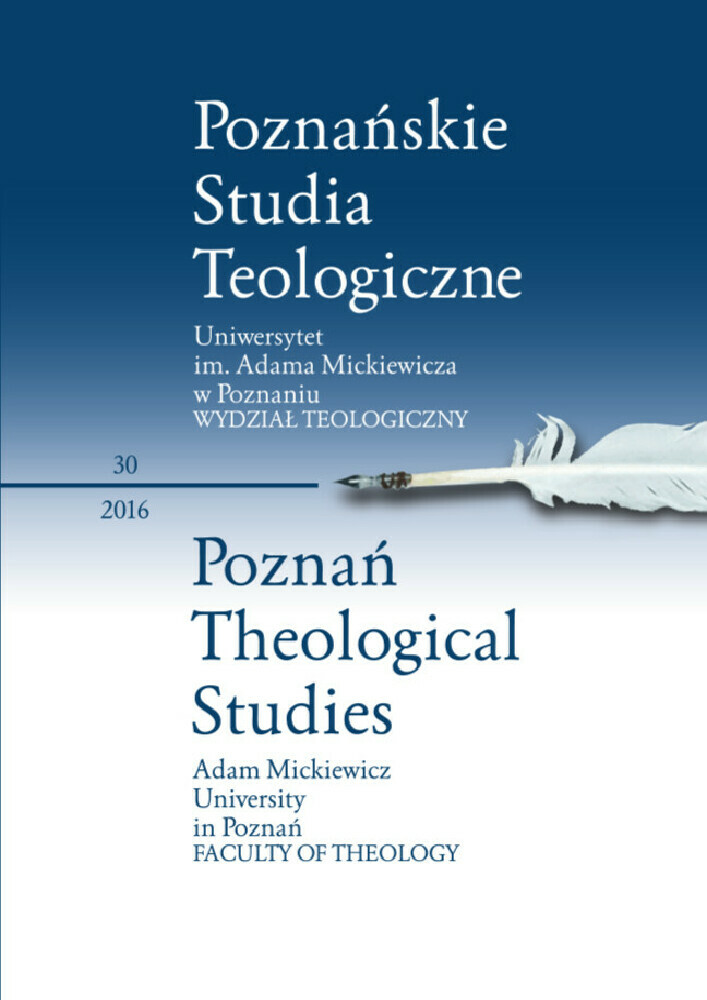Abstract
Within the Christian theology of religions one distinguishes three basic paradigms: exclusivism, inclusivism and pluralism. Pluralism considers all religions as equal ways of salvation leading to God. It denies that Jesus Christ is the unique Savior of the world. Inclusivism maintains the unicity and salvivic universality of Jesus Christ, but affirms that explicit faith in Jesus Christ is not necessary for salvation for unevangelized people. Exclusivism is the view that Jesus Christ is the only Savior of the world and that one must believe God’s special revelation that culminates in the gospel of Christ in order to be saved. Evangelical theologians principally maintain this position. Interestingly enough, on the one hand they affirm that children who die in infancy (as well as people who are mentally incompetent) are included within the circle of God’s saving grace and will be saved; on the other hand, they say that since the first coming of Christ the only way of salvation is explicit faith in him.
The article is divided into three parts. The first part examines the argument of those theologians about the fate of children who die in infancy and then compares it with the teaching of the Catholic Church expressed by the International Theological Commission in its document The Hope of Salvation for Infants Who Die Without Being Baptized (2007). The second part examines the biblical and theological arguments advanced by evangelical theologians in favor of exclusivism. In the third part these arguments are discussed from the perspective of Catholic theology. For Catholics as much as for evangelicals, there is no doubt that Jesus Christ is the unique Savior of the world and that salvation has always been by grace through faith. The difference concerns the content of this saving faith. Must it have as its object an explicit knowledge of Jesus Christ, as is argued by the evangelical exclusivists?
References
Aletti J.N., Saint Paul – Epitre aux Colossiens. Introduction, traduction, commentaire, Paris 1993.
Boismoard M.E., A l’aube du christianisme. Avant la naissance des dogmes, Paris 1998.
Bolewski J., Biała Bogini, czarna Madonna... Maryjne światło w ezoterycznym odbiciu, Warszawa 2005.
Capéran L., Le problème du salut des infidèles, t. 1: Essai historique, Paris 1912.
D’Costa G., Knitter P., Strange D., Only One Way? Three Christian Responses on the Uniqueness of Christ in a Religously Plural World, London 2011.
Fitzmyer J.A., Romans. A New Translation with Introduction and Commentary, New York 1993.
Kaiser Jr. W.C., Holy Pagans. Reality or Myth?, w: Faith Comes by Hearing. A Response to Inclusivisme, red. Ch.W. Morgan, R.A. Peterson, Downers Grove [USA, Illinois] 2008, s. 123-141.
Kasiłowski P., Pochwała wiary (Hbr 11), „Bobolanum” R. 10(2), 1999, s. 291-324.
Kubacki Z., Kościół, religie i zbawienie. O jedyności i powszechności zbawczej Kościoła oraz zbawczej roli religii niechrześcijańskich, Kraków 2016.
Ledwoń I.S., „... i nie ma w żadnym innym zbawienia”. Wyjątkowy charakter chrześcijaństwa w teologii posoborowej, Lublin 2006.
Matera F.J., New Testament Christology, Luisville [USA, Kentucky] 1999.
Międzynarodowa Komisja Teologiczna, Nadzieja zbawienia dla dzieci zmarłych bez chrztu. Dokument watykański, Radom 2008.
Moingt J., Dieu qui vient à l’homme, t. 2: De l’apparition à la naissance de Dieu, 1: Apparition, Paris 2005.
Morgan Ch.W., Peterson R.A., Answers to Notable Questions, w: Faith Comes by Hearing. A Response to Inclusivisme, red. Ch.W. Morgan, R.A. Peterson, Downers Grove [USA, Illinois] 2008, s. 241-255.
Nash R.H., When a Baby Dies. Answers to Comfort grieving Parents, Michigan 1999.
Nash R.H., Restrictivism, w: What About Those Who Have Never Heard? Three Views on the Destiniy of the Unevangelized, red. J. Sanders, Downers Grove [USA, Illinois] 1995, s. 107-140.
O’Collins G., Salvation for All. God’s Other Peoples, Oxford 2008.
Paciorek A., «Poznanie Bogu» i «prawo wpisane w sercu» – jaśniejsze strony egzegezy świata pogan według Rz 1-2, w: Nowy Testament a religie, red. I.S. Ledwoń, Lublin 2011, s. 185-199.
Papieska Komisja Biblijna, Interpretacja Biblii w Kościele. Dokument Papieskiej Komisji Biblijnej z komentarzem biblistów polskich, przekład i redakcja R. Rubinkiewicz, Warszawa 1999.
Peterson R.A., Inclusivism versus Exclusivism on Key Biblical Textes, w: Faith Comes by Hearing. A Response to Inclusivisme, red. Ch.W. Morgan, R.A. Peterson, Downers Grove [USA, Illinois] 2008, s. 184-200.
Pinnock C.H., The Flame of Love: A Theology of the Holy Spirit, Downers Grove [USA, Illinois] 1996.
Sesboüé B., Essai de théologie systématique sur le canon des Écritures, w: Le canon des Écritures. Études historiques, exégétiques et systématiques, Paris 1990, s. 523-540.
Sieniatycki M., Zarys dogmatyki katolickiej, t. 3: O łasce i cnotach wlanych, Kraków 1930.
Sobór Watykański II, Konstytucja dogmatyczna o Objawieniu Bożym „Dei Verbum”, w: Sobór Watykański II. Konstytucje, Dekrety, Deklaracje. Tekst łacińsko-polski, Paris 1967, s. 337-357.
Sobór Watykański II, Konstytucja dogmatyczna o Kościele „Lumen gentium”, w: Sobór Watykański II. Konstytucje, Dekrety, Deklaracje. Tekst łacińsko-polski, Paris 1967, s. 77-175.
Sobór Watykański II, Konstytucja duszpasterska o Kościele w świecie współczesnym „Gaudium et spes”, w: Sobór Watykański II. Konstytucje, Dekrety, Deklaracje. Tekst łacińsko-polski, Paris 1967, s. 533-657.
Strange D., General Revelation. Sufficient or Insufficient?, w: Faith Comes by Hearing. A Response to Inclusivisme, red. Ch.W. Morgan, R.A. Peterson, Downers Grove [USA, Illinois]: InterVarsity Press, 2008, s. 40-77.
Tiessen T.L., Who Can Be Saved? Reassessing Salvation in Christ and World Religions, Downers Grove [USA, Illinois] 2004.
Tomasz z Akwinu, Suma teologiczna, Londyn 1973-1998.
Webb R.A., The Theology of Infant Salvation, Richmond, VA 1907.
Wellum S.J., Saving Faith. Implicit or Explicit?, w: Faith Comes by Hearing. A Response to Inclusivisme, red. Ch.W. Morgan, R.A. Peterson, Downers Grove [USA, Illinois] 2008, s. 142-183.
License
Copyright
© 2016 Uniwersytet im. Adama Mickiewicza w Poznaniu, Wydawnictwo Naukowe UAM, Poznań
OPEN ACCESS
